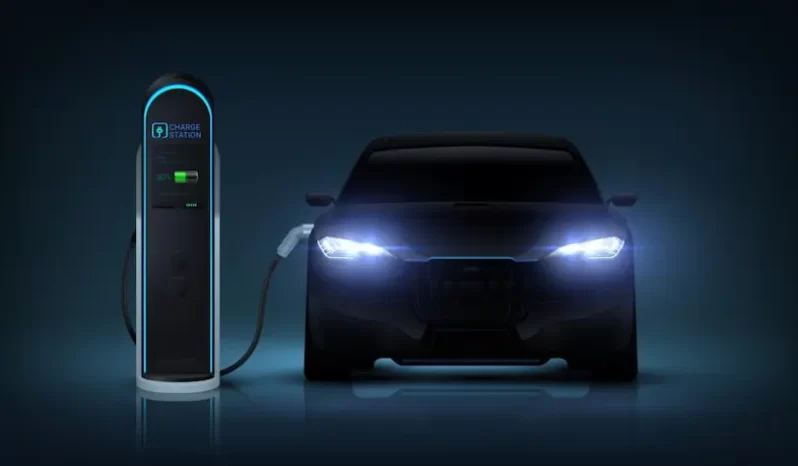Brazil is stepping into the spotlight as an unexpected leader in the global shift towards electric vehicles (EVs), a scene traditionally dominated by countries like the United States and China. Recent reports suggest that Brazil’s electric vehicle market is expected to grow by an impressive 30% annually over the next decade, making it a pivotal player among emerging markets. In this article, we’ll explore the factors fueling Brazil’s electric vehicle boom, the challenges it faces, and how this trend is influencing other emerging markets worldwide. Whether you’re an EV enthusiast or a curious observer of automotive trends, this piece will offer valuable insights into the electrification of transport in Brazil and beyond.
The Driving Forces Behind Brazil’s Electric Vehicle Boom
Government Initiatives and Policies
Brazil’s government is actively promoting electric mobility through a series of initiatives aimed at reducing carbon emissions and fostering sustainable development. Key policies include:
- Tax Incentives: Reduced import duties and tax breaks for electric vehicle manufacturers encourage both local and international companies to invest in the Brazilian market.
- Public-Private Partnerships: Collaborations between the government and private sector are accelerating the development of EV infrastructure, including charging stations.
- Subsidies for EV Purchasers: Financial incentives for individuals and companies purchasing electric vehicles are making EVs more accessible to a broader audience.
These measures are part of Brazil’s commitment to the Paris Agreement, aiming to cut greenhouse gas emissions by 43% by 2030.
Infrastructure Development
One of the critical aspects of Brazil’s electric vehicle boom is the rapid expansion of its charging infrastructure. According to InsideEVs, the number of charging stations in Brazil has increased by over 200% in the past two years. This growth is crucial for addressing range anxiety, a common concern among potential EV buyers. Key developments include:
- Fast-Charging Networks: Companies like Enel X and EDP are investing heavily in fast-charging networks along major highways, making long-distance travel feasible for EV owners.
- Urban Charging Solutions: Cities like São Paulo and Rio de Janeiro are seeing a rise in residential and commercial charging stations, catering to urban commuters.
Technological Advancements
Brazilian companies are also making strides in battery technology, a critical component of the EV ecosystem. Local startups are innovating with lithium-ion and solid-state batteries, which promise longer life spans and quicker charging times. As reported by TechCrunch, these advancements not only improve vehicle performance but also reduce the overall cost of electric vehicles, making them more appealing to consumers.
The Impact on Emerging Markets
Economic Opportunities
Brazil’s electric vehicle boom is creating significant economic opportunities, both domestically and across emerging markets. The production and assembly of EVs are generating jobs, while the demand for components like batteries is driving local industries. Notable developments include:
- Increased Employment: The EV sector is expected to create over 100,000 new jobs in Brazil by 2030, according to Bloomberg Green.
- Export Potential: Brazilian-made EV components are gaining traction in neighboring countries, enhancing Brazil’s position as a regional automotive hub.
Environmental Benefits
The shift to electric vehicles is poised to bring substantial environmental benefits. As reported by the IEA, switching to EVs could reduce Brazil’s CO2 emissions by up to 20 million tons annually by 2030. Other environmental impacts include:
- Reduced Air Pollution: Electric vehicles contribute to cleaner air in urban areas, a critical benefit for cities struggling with pollution-related health issues.
- Lower Noise Pollution: The quieter operation of electric vehicles results in less noise pollution, improving the quality of life in densely populated areas.
Practical Tips for Embracing Electric Vehicles in Brazil
How to Charge Your EV
Charging an electric vehicle in Brazil is becoming increasingly convenient. Here are some tips to keep in mind:
- Plan Your Route: Utilize apps like PlugShare to locate charging stations along your route.
- Home Charging: Consider installing a home charging station for overnight charging.
- Public Charging: Take advantage of fast-charging stations in shopping centers and public spaces for quick top-ups.
Where to Buy an Electric Vehicle in Brazil
Brazil offers a diverse range of electric vehicles from both local and international brands. Consider the following:
- Local Dealerships: Visit authorized dealerships for brands like BYD, Nissan, and Hyundai, which offer various EV models.
- Online Platforms: Websites like Webmotors and OLX provide listings for new and used electric vehicles.
What to Compare When Buying an EV
When choosing an electric vehicle, consider these factors:
- Range: Ensure the model’s range meets your daily commuting needs.
- Battery Life: Look for models with longer battery life and warranty coverage.
- Charging Options: Consider the availability of compatible charging infrastructure in your area.
Conclusion
Brazil’s electric vehicle boom is a testament to the potential of emerging markets to drive global change. By embracing innovative policies, investing in infrastructure, and fostering technological advancements, Brazil is setting an example for other nations to follow. As the world moves towards a more sustainable future, Brazil’s leadership in electric mobility offers hope and inspiration.
Are you considering making the switch to an electric vehicle? Explore the options available and join the growing community of EV enthusiasts making a positive impact on our planet. As Brazil continues to lead the charge, the future of transportation looks brighter and cleaner than ever before.

